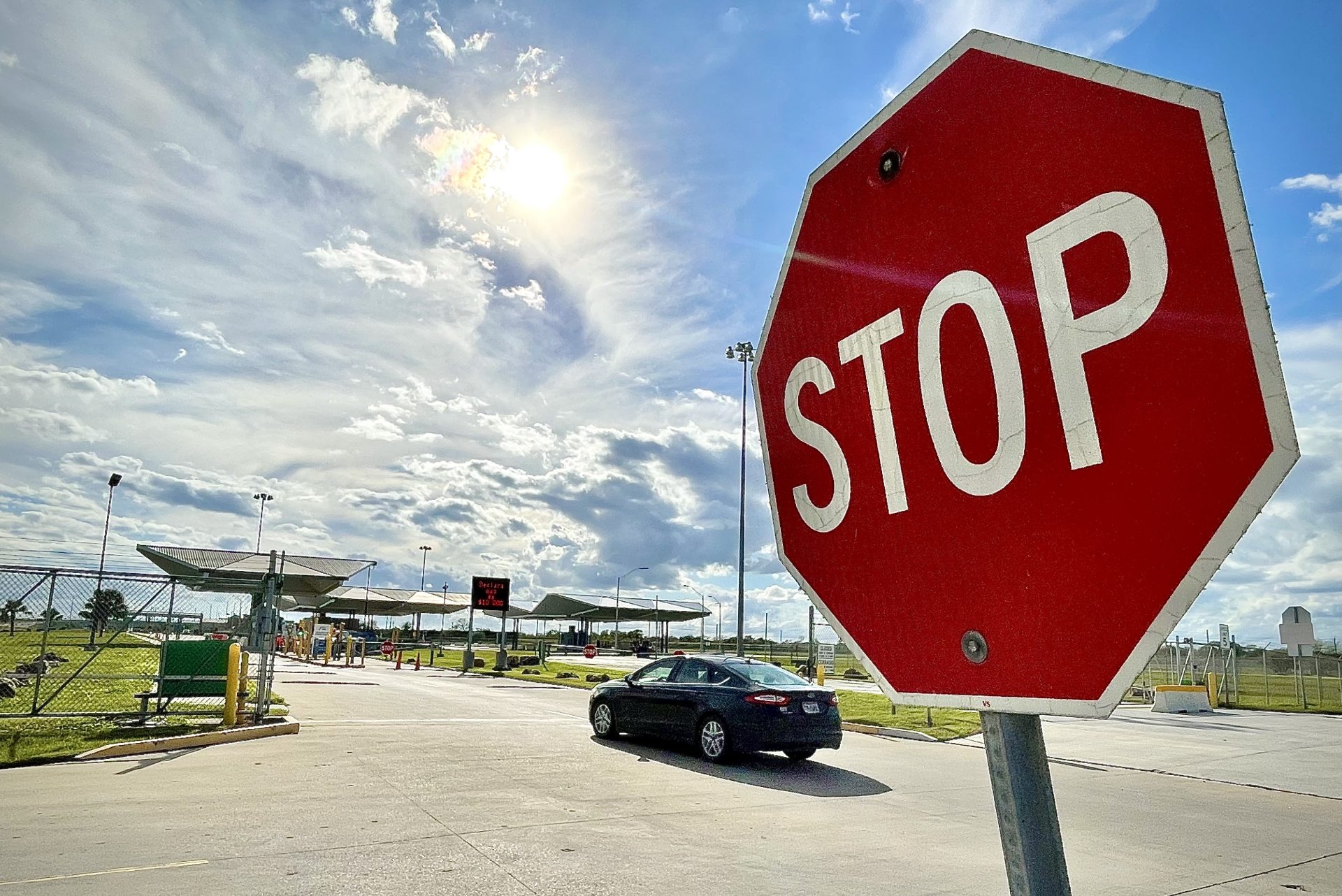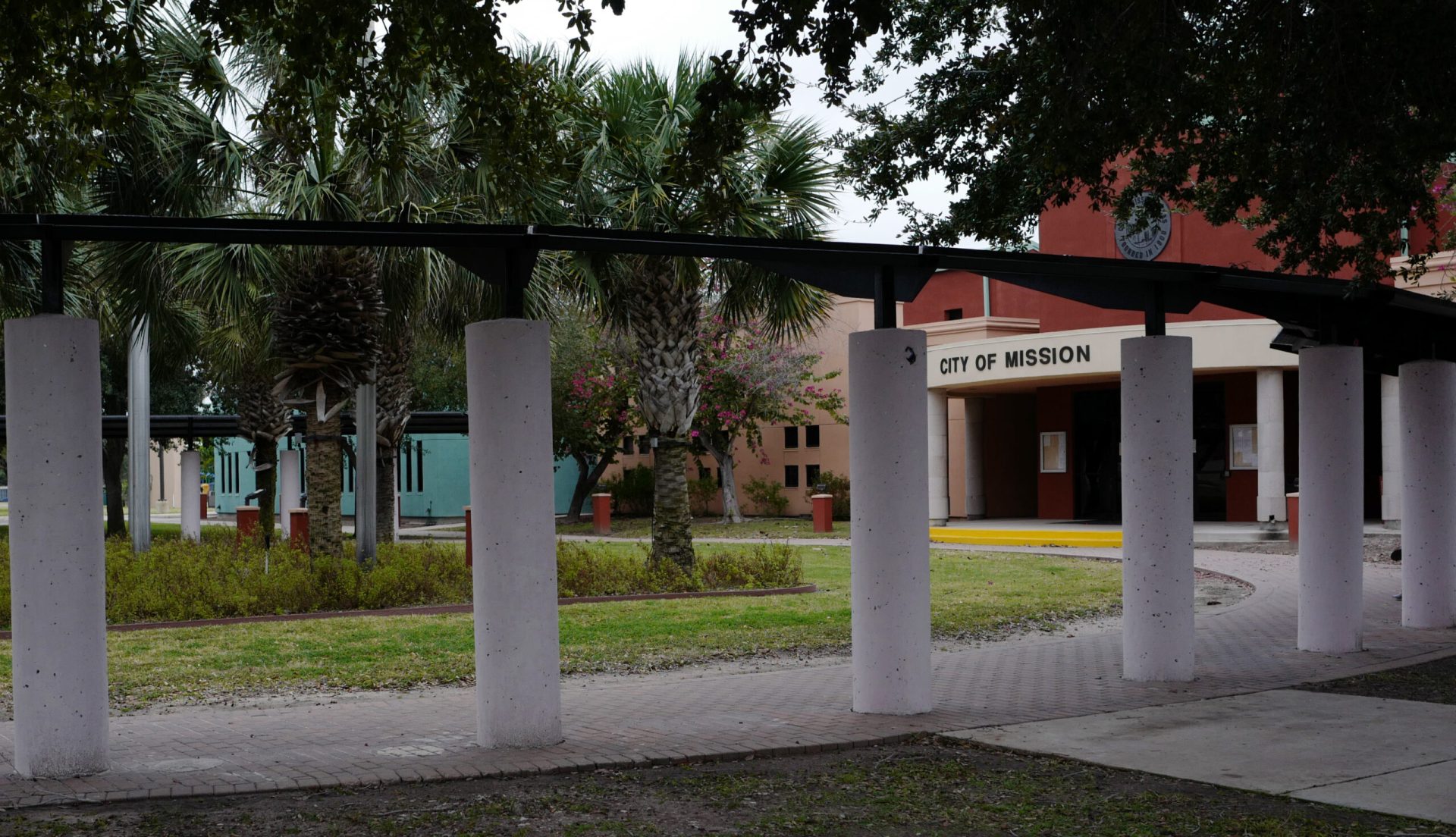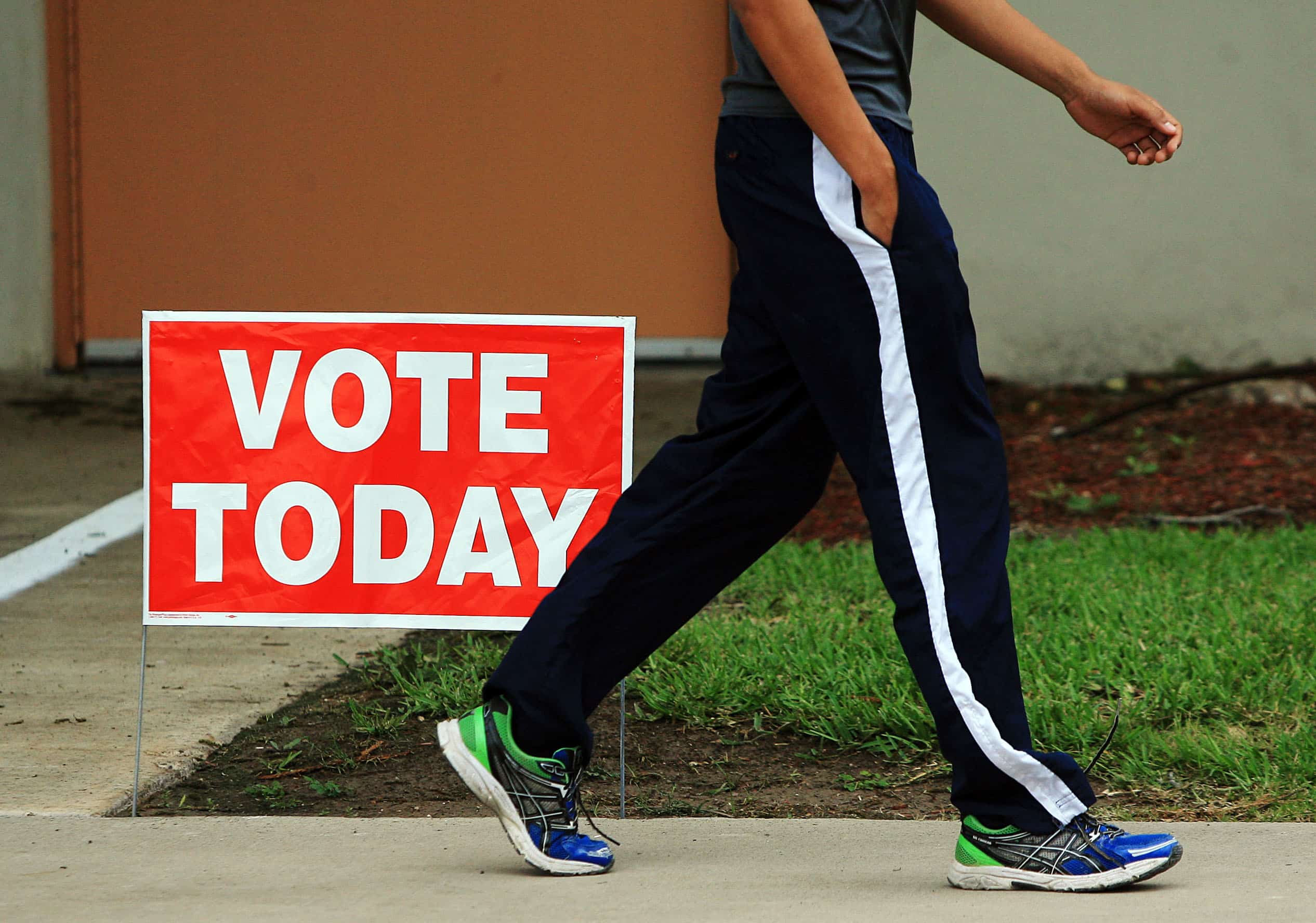|
Only have a minute? Listen instead
Getting your Trinity Audio player ready...
|
Early voting is underway in several municipal elections across Hidalgo County. Residents are being asked to choose new leaders, amending the rules that govern their city, or taking on decades’ worth of debt to finance public infrastructure.
DONNA BRIDGE BOND
First up, residents in the city of Donna are being asked to decide on a $45 million bond election that would go toward funding the ongoing commercial expansion of the Donna-Rio Bravo International Bridge.
City leaders first proposed the idea in December, shortly after a new majority took over the Donna City Council and canceled the issuance of $58 million in revenue bonds meant to fund the project.
Had that funding process proceeded, the city would have spent the next three decades paying the debt down solely with revenues from the tolls future truckers will pay to use the bridge.
With no other collateral to secure the debt, the revenue bonds would have come with a higher interest rate than the general obligation bond Donna leaders are hoping voters will approve.
That’s because a general obligation bond is backed by “the full faith and credit of the city,” Donna’s financial adviser, Andre Ayala, said during a workshop earlier this month.
While Donna leaders say they still expect to use bridge toll revenues to repay the 30-year debt, a general obligation bond nonetheless requires the city to levy an ad valorem — or property tax — should those bridge revenues fall short.
The caption of the election proposition makes that clear.
“The issuance of bonds in the amount of $45,000,000 for the Donna International Bridge and the imposition of taxes sufficient to pay the principal of and interest on the bonds,” Proposition A reads.
When asked what kind of tax burden could potentially be placed on Donna residents should the toll revenues fall short, officials couldn’t answer, but said such a possibility was a “doomsday scenario.”

Instead, the city cited the findings of “an investment-grade revenue study” conducted sometime last fall as proof that the bridge will be a revenue maker.
“We need 102 trucks per day … 37,230 per year” to break even, Ayala, the Hilltop Securities financial adviser, said.
That amount of traffic would equate to just 5% of the commercial traffic that currently crosses at the Pharr-Reynosa International Bridge, he said.
On April 11, The Monitor filed a Texas Public Information Act request for the revenue study that Donna is using to support the bond proposal.
On Thursday, however, the city notified the newspaper that it was seeking permission to withhold its release citing security concerns.
“The Revenue study for the Donna-Rio Bravo International Bridge … contains information that pertains to security features of a port of entry expansion project,” the city stated in its letter to the Texas Attorney General’s Office.
“This project involves other local, state, and federal law enforcement agencies,” the letter further states.
MISSION CHARTER CHANGES
Meanwhile, over in the city of Mission, leaders are asking residents to decide on two dozen proposed changes to the Mission City Charter.
Five of the 24 propositions revolve around changes to how the city conducts its elections.
Should Mission voters approve these amendments, it would mean implementing term limits for city council members, moving city elections from May to November, adding candidate filing fees, and more.
Five more propositions would change how the city deals with finances or policies related to its finances.

For instance, Proposition K would require the creation of an internal auditor position who would have the power to conduct fiscal audits at the request of the council.
Other finance-related propositions call for removing requirements to publish a simplified version of Mission’s financial reports in a local newspaper, changing the timelines by which staff must present a draft budget to council, and altering the definition and consequences associated with conflicts of interest.
The remaining propositions deal with myriad subjects, including clarifying the charter’s language to be more in line with modern state statutes, redefining the organizational structure of several city departments, and eliminating superfluous charter language or job positions.
COUNCIL RACES
Four of the county’s smaller towns are holding elections with the potential to reshape their respective city councils.
The Place 1 and Place 3 seats are up for grabs in Palmview.
Three people are vying for the Place 1 seat, including incumbent Javier Ramirez, who is running on the “Progress for Palmview” slate with Place 3 candidate Eric Edward Sanchez.
Meanwhile, Alexandra Flores, the Place 3 incumbent, has formed the “Palmview Strong” slate with Place 1 candidate Esequiel “Zeke” Ortiz Jr.
Rounding out their slate is a candidate who is running in an unrelated election — Dr. Robert Zamora Jr., who is running for a seat on the South Texas College board of trustees.
Should Zamora win his race, he may be forced to resign from his position as the assistant director of fine arts for La Joya ISD after a state-appointed board of managers for that school district earlier this month voted unanimously to bar district administrators from holding elected office.
The third and final candidate for Place 1 on the Palmview City Council is Maria Cristina Alanis.
Over in the city of Hidalgo, three city council seats are up for a vote.
Place 1 incumbent Gustavo “Gus” Sanchez is being challenged by Jose Luis “Wero” Ayala, who is part of a three-person slate looking to sweep all three council seats.
Ayala has joined forces with Place 5 incumbent Bertha Sosa, and Place 3 candidate Jorge Augusto Contreras to form the “Hidalgo Unidos Por El Cambio,” or “Hidalgo United For Change” slate.
But Sanchez, the place 1 incumbent, is part of a political slate, as well.
Joining him are Raul Sanchez, who is running for Place 3, and Dennis Isai Hernandez, who is running for Place 5.
In the Delta, voters will decide on three seats on both the Elsa City Council and the La Villa Board of Aldermen.
In Elsa, both Place 4 incumbent Frances S. Rocha and Place 2 incumbent Victor Hernandez drew no challengers and have essentially won their reelection bids outright.
However, there is some competition at Place 3, where Esiquiel “Zeke” Avila Jr. and Fernando Rosa Sr. are challenging incumbent Rick Sanchez.
Sanchez has held the seat since 2012 — the same year his Place 2 colleague, Victor Hernandez, was elected, city records show.
However, the unopposed Hernandez has nonetheless teamed up with Sanchez’s opponent, Fernando Rosa, on a joint political slate.
Finally, in La Villa, voters will decide who they want to be mayor, as well as their Place 4 and 5 aldermen.
Incumbent Mayor Alma Morón is being challenged by Rosa Perez while longtime alderman David Palomin has partnered with John Espericueta in a bid to unseat Place 4 incumbent Jorge Lopez Jr.
Palomin, meanwhile, is facing challenger Jesus Rodriguez for his Place 5 seat.




